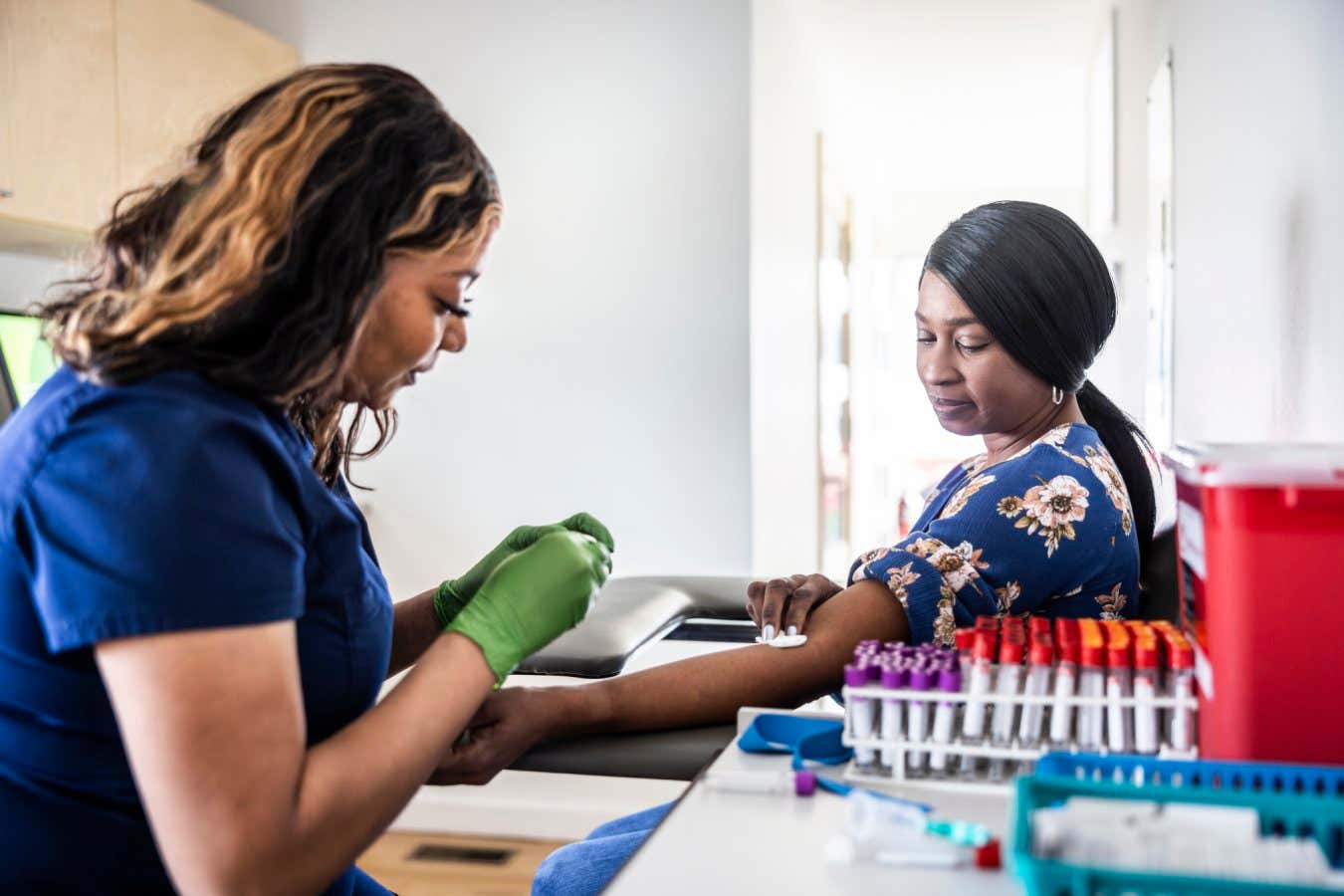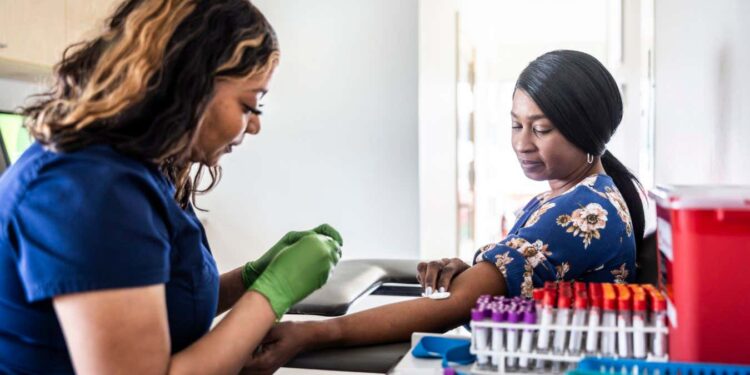
A small sample of blood can tell us a lot about our health
MoMo Productions/Getty Images
A single blood test can reveal the biological ages of 11 different organs and bodily systems, potentially highlighting the risk of disease in those areas.
“The goal is to guide care with one test that shows not only overall biological age, but which systems are driving it,” says Raghav Sehgal at Yale University. “That way, people can get specific lifestyle or treatment recommendations based on their unique profile.”
To gauge someone’s longevity or their risk of ill health, it helps to know their biological age – how fast their bodies are ageing – as opposed to just their chronological one, says Morgan Levine at Altos Labs in California. To find this out, scientists have developed epigenetic clocks that analyse DNA methylation – the process in which DNA adds or removes chemical tags that help switch various genes on and off.
It is useful, but lacks precision, says Levine. Our organs and systems age at different rates, depending mainly on our genetics and medical history, she says.
“There’s a realisation that organs and systems within an individual may age differently,” says Vadim Gladyshev at Harvard University, who wasn’t involved in the study. “Some people may be older in the brain, others in the kidney, and some in multiple organs, compared to the rest of the body.”
So Sehgal, Levine and their colleagues set out to develop a methylation test that focuses on the ageing status of different body parts. First, they reviewed the blood tests, medical histories and physical measurements, such as grip strength, of about 7500 people whose data had been collected as part of two research programmes: the Health and Retirement Study – a database of people in the US aged over 50 – and the Framingham Heart Study, part of which involves families in the US providing DNA for genomic research.
The scientists then looked for any clear links between blood biomarkers and age-related conditions associated with five organs – the heart, lung, kidney, liver and brain – and six systems – the immune, inflammatory, blood, musculoskeletal, hormone and metabolic systems. They then connected those results with DNA methylation patterns, and trained a computer model to recognise those patterns and calculate a biological age for each organ or system, as well as providing an overall biological age.
Once their model was trained, the researchers tested it on blood from an additional 8125 people, whose data was used in four other studies. They found, for example, that their model’s heart score could predict heart disease, the brain score tracked with cognitive decline and the musculoskeletal score reflected whether people had conditions like arthritis.
When tested against existing epigenetic clocks, the organ/system-specific scores were at least as accurate, and mostly better, according to the researchers. “It’s somewhat remarkable that we could validly estimate ageing across so many systems by just measuring one thing in a blood test,” says Levine.
Daniel Belsky at Columbia University in New York says this clock represents “valuable” progress in geroscience, the study of ageing. “This is the first epigenetic clock to look at multiple systems within the body simultaneously and to move toward this idea of an interpretable measurement of biological ageing that can be traced back to tissues in an organ,” he says. “This would give us a means to work backward from a summary measurement towards the site within the body where the emergence of pathology is closest.”
But he cautions that such an approach might stray from the general goals of the field. “The idea of geroscience and the promise of ageing biology was to get us past thinking about humans as a collection of independently operating parts in which we try to find the weakest link and prop it up to prevent failure, to thinking about the organism as an integrated whole,” says Belsky. “I think it’s important that we not lose sight of that original vision.”
Importantly, the test isn’t meant to be used for diagnostics, but rather to assess risks, says Levine. “All these tests – like the one in our study – are meant to give estimates and provide some insight of what’s going on in our bodies,” she says. “Over time, researchers should be able to develop even more valid and robust estimates of the ageing process, likely by incorporating a multitude of different measures to capture the heterogeneity and complexity of the ageing process.”
Gladyshev hopes the research may lead to personalised disease-preventive strategies. “This is the main implication of this line of research.” But Belsky adds that more studies are needed. “We’re not there yet.”
Topics:
Source link : https://www.newscientist.com/article/2497154-one-blood-sample-could-reveal-the-age-of-11-of-your-organs-and-systems/?utm_campaign=RSS%7CNSNS&utm_source=NSNS&utm_medium=RSS&utm_content=home
Author :
Publish date : 2025-09-19 16:00:00
Copyright for syndicated content belongs to the linked Source.












